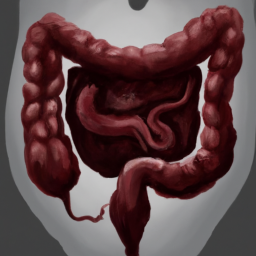
Irritable Bowel Syndrome: Symptoms and Treatments
Irritable bowel syndrome, commonly known as IBS, is a gastrointestinal disorder that affects the large intestine. It is a chronic condition that can cause a range of symptoms, including abdominal pain, bloating, diarrhea, and constipation.
Living with irritable bowel syndrome can be extremely frustrating. The unpredictable nature of the condition, including sudden and intense abdominal pain, diarrhea, and constipation, can make it difficult to plan everyday activities. The embarrassment and discomfort of having to constantly excuse oneself from social situations or work can also be overwhelming. Many sufferers also experience anxiety, depression, and a sense of isolation due to the lack of understanding and awareness of the condition.
Irritable Bowel Syndrome Symptoms
Symptoms of IBS can vary from person to person, and some people may experience only a few symptoms while others may experience all of them. The most common symptoms of IBS include abdominal pain or cramping, bloating, gas, diarrhea, constipation, and mucus in the stool.
The exact cause of IBS is not clear, but it is thought to be related to a combination of factors, including abnormal muscle contractions in the colon, inflammation in the intestines, and changes in the gut microbiome. Stress and anxiety can also be triggers for IBS symptoms.
Treatments
There is no cure for IBS, but there are several treatment options available to manage symptoms. The first step in treating IBS is to make lifestyle changes, such as reducing stress, increasing physical activity, and improving dietary habits. Eating a diet rich in fiber and avoiding trigger foods, such as caffeine and alcohol, can also help manage symptoms.
The Gut-Healthy Benefits of Regular Exercise

In addition to lifestyle changes, there are several medications that can be used to treat IBS symptoms. These include antispasmodic drugs, which help reduce muscle spasms in the intestines, laxatives, which help relieve constipation, and anti-diarrheal medications, which help control diarrhea.
For some people, alternative therapies such as acupuncture and probiotics may also be effective in managing IBS symptoms. It is important to talk to a healthcare provider before trying any alternative therapies to ensure they are safe and appropriate.
Probiotics – Are They Worth it?

IBS is a chronic condition that can cause a range of symptoms, including abdominal pain, bloating, diarrhea, and constipation. While there is no cure for IBS, there are several treatment options available to manage symptoms. Making lifestyle changes, such as reducing stress and improving dietary habits, and taking medications or trying alternative therapies can all be effective in managing IBS symptoms. It is important to work with a healthcare provider to develop a personalized treatment plan that works best for each individual.
